News
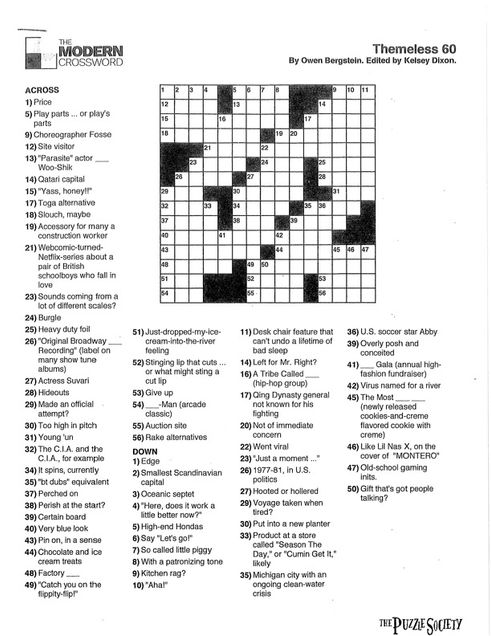
Owen Bergstein, Resident Puzzle Master
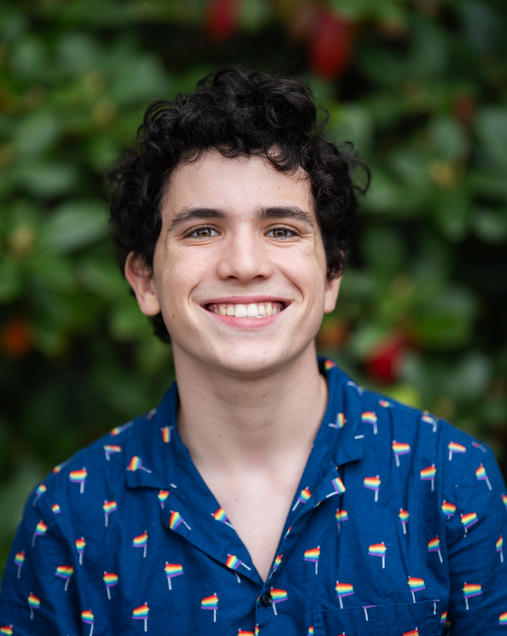 For BUA sophomore Owen Bergstein ‘26, crossword puzzles are a way of life. Always an avid puzzler – like many BUAers – Owen does the New York Times crossword every day and estimates that he’s solved close to 1,000 puzzles since starting at BUA. But about two years ago, Owen took the leap from solver to creator and began to teach himself how to design his own puzzles. Tapping into a network of online and in-person crossword constructors, Owen found mentorship and guidance, and began to refine his puzzle-building technique.
For BUA sophomore Owen Bergstein ‘26, crossword puzzles are a way of life. Always an avid puzzler – like many BUAers – Owen does the New York Times crossword every day and estimates that he’s solved close to 1,000 puzzles since starting at BUA. But about two years ago, Owen took the leap from solver to creator and began to teach himself how to design his own puzzles. Tapping into a network of online and in-person crossword constructors, Owen found mentorship and guidance, and began to refine his puzzle-building technique.
Reflecting on his process, Owen said: “ I started out constructing pencil-on-paper, but soon learned that there is helpful software that the pros use. Every crossword is either themed or themeless. For themed puzzles, you build a theme, generally based around what's called a ‘revealer,’ an answer in the grid that explains the gimmick going on in other answers. Then you put that theme into a grid, and build words around it, cohering to 180 degree rotational symmetry of the black squares.”
Once he felt confident in his crosswords, Owen started submitting his puzzles for publication to a wide array of outlets. By his estimate, he has “a whopping 20 rejections to date.” But Owen’s persistence paid off, and earlier this month, Owen published his first puzzle in The Modern, the crossword feature on the Puzzle Society website.
When asked about how he approached the creation of his first published puzzle, Owen shared (CROSSWORD SPOILERS AHEAD!):
“Themeless puzzles, like the one published in The Modern, begin with some number of ‘seed entries,’ words that seem particularly fun or interesting and have never appeared in a crossword before. For my Modern puzzle, there were three: SLAY QUEEN, HEARTSTOPPER, and DENIM ON DENIM (I refer to entries in all caps, cohering to crossword customs). I generally try to put queer representation into my puzzles, since it's often lacking in crosswords, hence HEARTSTOPPER and SLAY QUEEN. I built this particular puzzle over two days in August. It was rejected at two other venues, including the New York Times, before finding its home at the Modern— just one example of the many instances by which crosswording has taught me resilience. The published puzzle is almost entirely my own creation. The grid is fully my work, other than an asymmetrical black square at the bottom of the grid that my editor Kelsey Dixon asked me to put in. The clues are mostly my own, but some were tweaked by Kelsey and the proofreader.”
Think your skills are up to the task of solving Owen’s crossword? Subscribers to Puzzle Society can try their hand at this link.

Our Alums
I’m just back from a trip to San Francisco visiting BUA alums with Mr. Stone. Over two days, we caught up with several dozen BUA graduates ranging from the class of 1997 to 2018. The trip confirmed a few things for me, aside from the fact that I am perhaps getting too old to function well after a red-eye flight. One is that our alums are doing remarkable and purposeful things with their careers, with a focus on technology given the location: launching a medical-technology company as part of the current Y Combinator startup accelerator cohort; pushing the boundaries of artificial intelligence in education; investing in next-generation cancer therapeutics; developing LiDAR systems for use in self-driving cars. They spoke not just of their passion, but also of the ways in which their work will impact society for the better. It gave me a lot of hope for the future.
Another is that many of them credit their time at BUA for their success. I heard about the independence and project-management skills they picked up as part of the senior thesis – especially in finding an advisor or lab, switching gears when they hit a bump, and carrying through on a long-term project. I heard about the confidence and entrepreneurial spirit they built when starting a new club in high school with the support and guidance of their teachers. I heard about how BUA’s strong humanities program – with its emphasis on close reading, analytical thinking, clear writing, and deep engagement around the table – has been a major differentiating factor and reason for their quick rise in STEM fields, where those skills are not as common.
Finally, over and over again alums expressed their desire to pay it forward. They want to be helpful to this next generation of BUA students. So many already help as alumni interviewers, volunteers on the Alumni Council, class representatives, coaches and club mentors, career and college panelists, all-school meeting speakers, and so on. There is a real desire to do even more. In the coming months and years, we are exploring ways to connect BUA graduates – as well as current and past parents – to today’s BUA students for a range of things: informational interviews about career paths, shadow days at work, and more. I imagine that some of those preliminary connections will turn into longer-term mentoring relationships. It is exciting to think about how leveraging our alums’ remarkable energy, generosity, and experience can inspire and accelerate our students’ journeys.
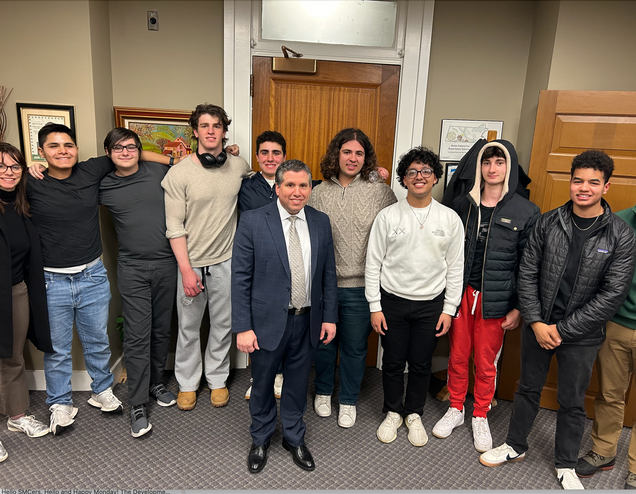
BUA Transit Club Lobbies MA State Senator Sal DiDomenico
 On Tuesday, January 23, members of the BUA Transit Club were accompanied by chaperones Mr. Seth and Ms. Kelly on an exciting visit to the State House to enjoy a tour of the Senate and House chambers, as well as take part in an engaging and helpful discussion with State Senator and Assistant Majority Leader Sal DiDomenico about local public transportation concerns. Senator DiDomenico, representing the cities of Cambridge, Charlestown, Chelsea, and Everett, overheard numerous concerns and suggestions regarding the MBTA’s budget, reliability, and future plans. The senator was extremely impressed about how knowledgeable Transit Club members were, and encouraged all students to reach out to local representatives engaged in pushing transit infrastructure legislation; he hopes to include some of BUA students’ suggestions in his upcoming transit legislation.
On Tuesday, January 23, members of the BUA Transit Club were accompanied by chaperones Mr. Seth and Ms. Kelly on an exciting visit to the State House to enjoy a tour of the Senate and House chambers, as well as take part in an engaging and helpful discussion with State Senator and Assistant Majority Leader Sal DiDomenico about local public transportation concerns. Senator DiDomenico, representing the cities of Cambridge, Charlestown, Chelsea, and Everett, overheard numerous concerns and suggestions regarding the MBTA’s budget, reliability, and future plans. The senator was extremely impressed about how knowledgeable Transit Club members were, and encouraged all students to reach out to local representatives engaged in pushing transit infrastructure legislation; he hopes to include some of BUA students’ suggestions in his upcoming transit legislation.

What Do You Do For Fun?
As I was walking the halls recently, I passed a classroom during a free period where about a dozen students were looking up at a crossword puzzle projected on the screen. I popped in – I love crosswords too much to just walk by – and quickly discovered that I was in a new world. The students were working on a cryptic crossword puzzle, where each of the clues is a puzzle to solve – puzzles within puzzles. The whole room erupted when somebody got an answer; I didn’t contribute much, but it was fun to try it with them. After school that same day, I came across four kids playing chess on two boards side by side, with another handful of students and a teacher watching from the periphery. They explained that they were playing something called Bughouse Chess, a two-on-two version of the game where pieces taken by your partner on one board can then be placed on their partner’s board, making the game less predictable and according to the students, even more exciting.
When I was young, people used to ask me, “What do you do for fun?” I remember feeling some pressure not to talk about the books I was reading, poetry I was writing, crossword puzzles I was designing, role playing games I was into, and instead stay on the safer ground of watching movies and playing sports. I love that this is a school where working together on mind-bending wordplay or multi-dimensional chess is just part of the fun. For so many of our students, the “work” they do in the classroom – the books they read, the math problems they work on – is part of the fun too. Let the games continue!

Dora Mou ’27 Wins New York Times Essay Contest

Ninth-grader Dora Mou '27's essay, "My Two Primal Urges," was selected as one of 15 winners of the New York Times' 2nd annual Teen Tiny Memoirs contest. Teen Tiny Memoirs are 100-word narratives by teenagers about meaningful moments in their lives. Read Dora's winning essay here.
Congratulations, Dora, on your fantastic essay and this incredible accomplishment!
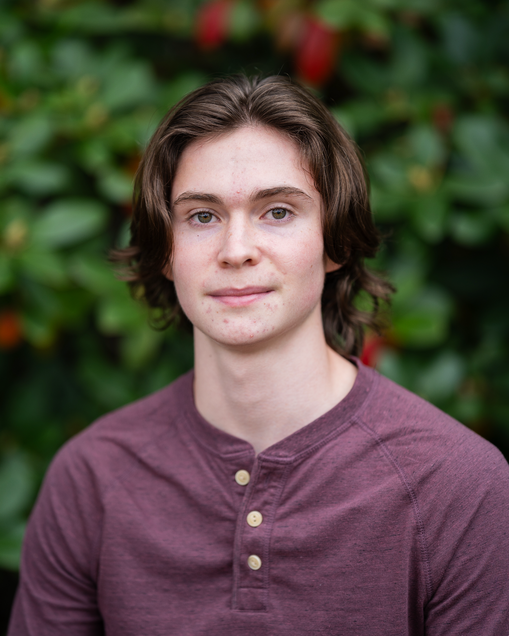
Research Highlight: Robbie Mulroy ’24
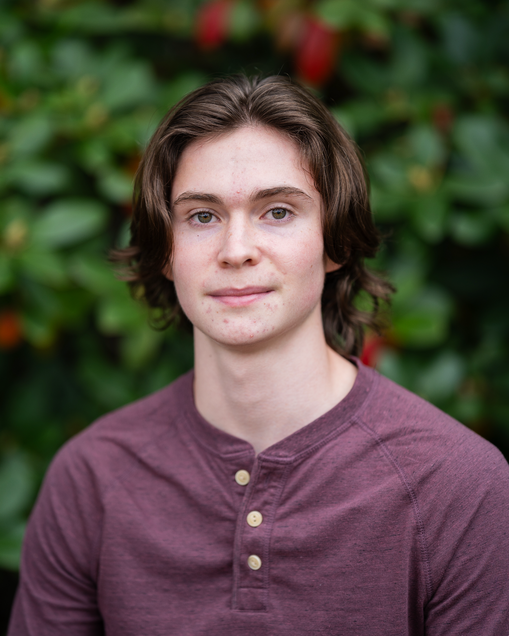 BUA senior Robbie Mulroy's thesis project has the potential to impact the future of cancer research.
BUA senior Robbie Mulroy's thesis project has the potential to impact the future of cancer research.
For his senior thesis, Robbie '24 is investigating the role of the CREB binding protein (CBP) in cancer under the guidance of BU Biology Professor Dr. Trevor Siggers as well as BUA Biology Teacher Dr. Colleen Krivacek, who by remarkable coincidence happens to have expertise in this area. CBP is a cofactor that binds to transcription factors, which in turn bind to DNA to regulate when genes are expressed. The CREB binding protein regulates around 10,000 different genes; Robbie has been studying where and when CBP’s five binding regions bind to various transcription factors.
Inspired by his BU biology courses, Robbie was motivated to better understand the inner workings of the human body on a genetic level, and to investigate CBP’s effect on the immune system and the relationship between CBP and tumor development.
In the spring of 2023, Robbie reached out to Dr. Siggers to introduce himself and to ask if Dr. Siggers might be willing to supervise his senior thesis research. Dr. Siggers happily accepted, and Robbie spent the summer in the Siggers Lab here on campus, which is dedicated to systems biology and gene regulation in the immune system. Conducting experiments alongside undergraduate and graduate students, Robbie’s research entailed taking each of five binding domains and inserting them into lentivirus plasmid, infecting cells with that virus, and then extracting the nuclei of those cells. He then used a protein binding microarray to test binding domains with different transcription factors to see which ones bound and which did not. The experimentation process was not without challenges, and taught Robbie some important lessons about scientific methods and problem solving. Through trial and error, Robbie and his fellow researchers fine tuned their experiments, adjusting transformation timings and solution concentrations until they felt they were achieving valid, measurable results.
Robbie is now working on translating his findings into a research paper that will constitute his thesis project. Reflecting on potential broader impacts of his very technical research, Robbie explains:
“Errors in CBP regulation are linked to many types of cancer, including lung cancer, head and neck cancer, acute leukemia, colorectal cancer, breast cancer, and prostate cancer. Through interactions with other proteins and its primary histone acetylation function, CBP regulates several phases of the cell cycle. This means that overexpression of the gene that encodes CBP or mutations within the gene can cause cells to grow unpredictably. On the flip side, the underexpression of CBP has been shown to lead to apoptosis (cell death). Some cancer treatments in development are trying to downregulate CBP expression in cancer cells to kill them.”
Future cancer researchers may build on Robbie’s and Dr. Siggers’s team’s findings to further tease out the relationship between the CREB binding protein and tumor development. Robbie will present his complete research project alongside fellow seniors at BUA’s Senior Thesis Symposium in Metcalf Hall on May 13, 2024.
Transit Club on the Move: Student Transit Advocates Make Riding the T a Varsity Sport
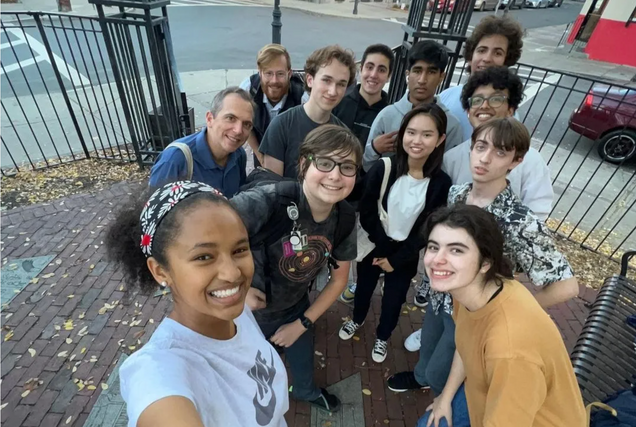 This week, a guest column from Ilias Benmokrane '24, founder and leader of the BUA Transit Club, appeared on the Mass Streetsblog. The column recaps the club's signature Transit Races, shares why it's important for students to be educated on the public transit resources available to them, and suggests improvement for the MBTA (there are many!).
This week, a guest column from Ilias Benmokrane '24, founder and leader of the BUA Transit Club, appeared on the Mass Streetsblog. The column recaps the club's signature Transit Races, shares why it's important for students to be educated on the public transit resources available to them, and suggests improvement for the MBTA (there are many!).
The goals of the BUA Transit Club include "instructing new students on how to use the Transit app to navigate through the city; discussing the history of transportation; and drafting proposals regarding safer and more convenient transportation to local agencies." The group even puts out a weekly newsletter with helpful information on transit closures and alternate routes!
Congratulations to Ilias and the Transit Club on the publication of their first column. Read the full article here.
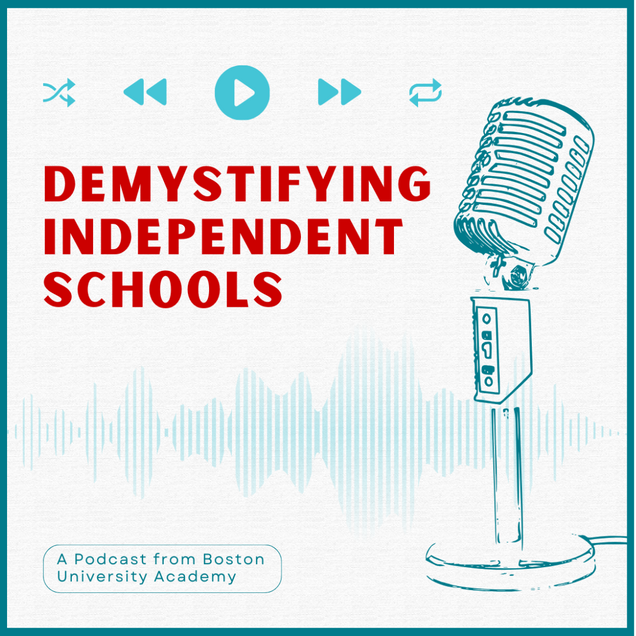
BUA Launches Demystifying Independent Schools Podcast
 Boston University Academy is proud to share our first foray into the world of podcasting!
Boston University Academy is proud to share our first foray into the world of podcasting!
The Demystifying Independent Schools Podcast debunks common misconceptions about independent schools – for example, that independent schools are not diverse, and that only the wealthy can afford an independent school education – and shares why independent schools are more affordable than many families think. On the podcast, education experts from BUA’s peer and feeder schools and our very own Head of School Chris Kolovos and Associate Head of School for Enrollment and Institutional Advancement Nastaran Hakimi discuss the value of an independent school education and why financial assistance is within reach of middle class families.
In the first episode, independent school leaders across the country discuss the value proposition of independent schools; in the second episode, financial aid experts explain why broad socioeconomic diversity is in every independent school's best interest, and offer tips and tricks for the financial aid process. Our guests on the podcast include leaders from Shady Hill School, St. Paul’s School, Beacon Academy, the Friends School of Baltimore, and the Epiphany School, as well as David Chard, Dean of BU Wheelock’s College of Education. You can visit the podcast homepage to learn more about the most common independent school myths and facts.
Hear our episodes when you listen to WBUR’s Here & Now, On Point, The Common, or Circle Round wherever you get your podcasts, or at this link: https://www.demystifyingindependentschools.com/
If you like what you hear, please share with your networks or anyone you think might be a great fit for BUA!
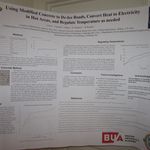
Zach Daniel ’25 Presents Paper at Materials Research Society Conference
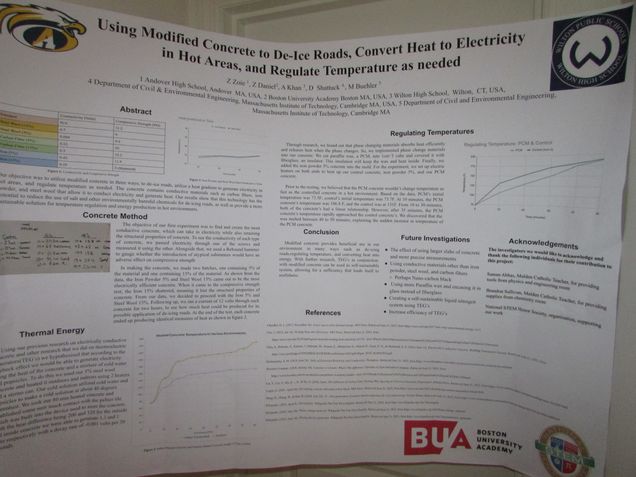 On Tuesday, November 28, BUA junior Zach Daniel '25 presented a paper entitled "Potential Applications of Electrically Conductive Concrete" at the Materials Research Society's conference at the Hynes Convention Center. Zach's research, which he carried out in partnership with three other students from area schools, explored special concrete that conducts electricity for de-icing roads, controlling surface temperature, and turning heat into energy.
On Tuesday, November 28, BUA junior Zach Daniel '25 presented a paper entitled "Potential Applications of Electrically Conductive Concrete" at the Materials Research Society's conference at the Hynes Convention Center. Zach's research, which he carried out in partnership with three other students from area schools, explored special concrete that conducts electricity for de-icing roads, controlling surface temperature, and turning heat into energy.
Zach shares that, in conducting experiments for the project, "we made concrete samples with materials like carbon fibers, iron powder, and steel wool. Results showed that 5% iron powder and 15% steel wool worked well, but too much iron powder made the concrete weak.We also looked at adding materials that change from solid to liquid (PCM) to control temperature. The study found that PCM delayed temperature increase during heating. Additionally, we tried generating electricity from the heat in the concrete using a method called the Seebeck Effect. Results showed potential for using this to produce electricity. In conclusion, our research suggested that using this special concrete could be a more eco-friendly way to de-ice roads, control temperatures, and generate electricity."
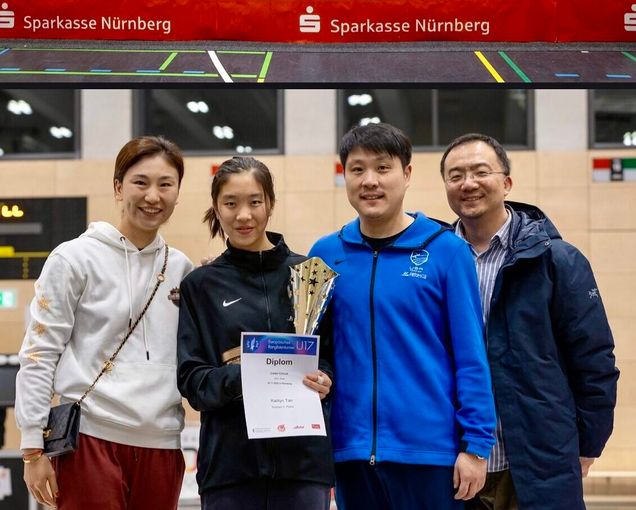
Kaitlyn Tan ’26 Earns Accolades in Junior Fencing World Cup
 Kaitlyn Tan '26 recently competed in her first Junior World Cup fencing meet in Lima, Peru, earning 6th place in the Cadet Foil event as the youngest amongst the top eight finishers. The Junior’s World Cup is a competition for women’s fencers who are 19 years old and younger. Last week, she also competed in another international Cadet competition in Germany, earning a bronze medal out of 236 international fencers aged 17 and under. Kudos, Kaitlyn, on these incredible accomplishments!
Kaitlyn Tan '26 recently competed in her first Junior World Cup fencing meet in Lima, Peru, earning 6th place in the Cadet Foil event as the youngest amongst the top eight finishers. The Junior’s World Cup is a competition for women’s fencers who are 19 years old and younger. Last week, she also competed in another international Cadet competition in Germany, earning a bronze medal out of 236 international fencers aged 17 and under. Kudos, Kaitlyn, on these incredible accomplishments!